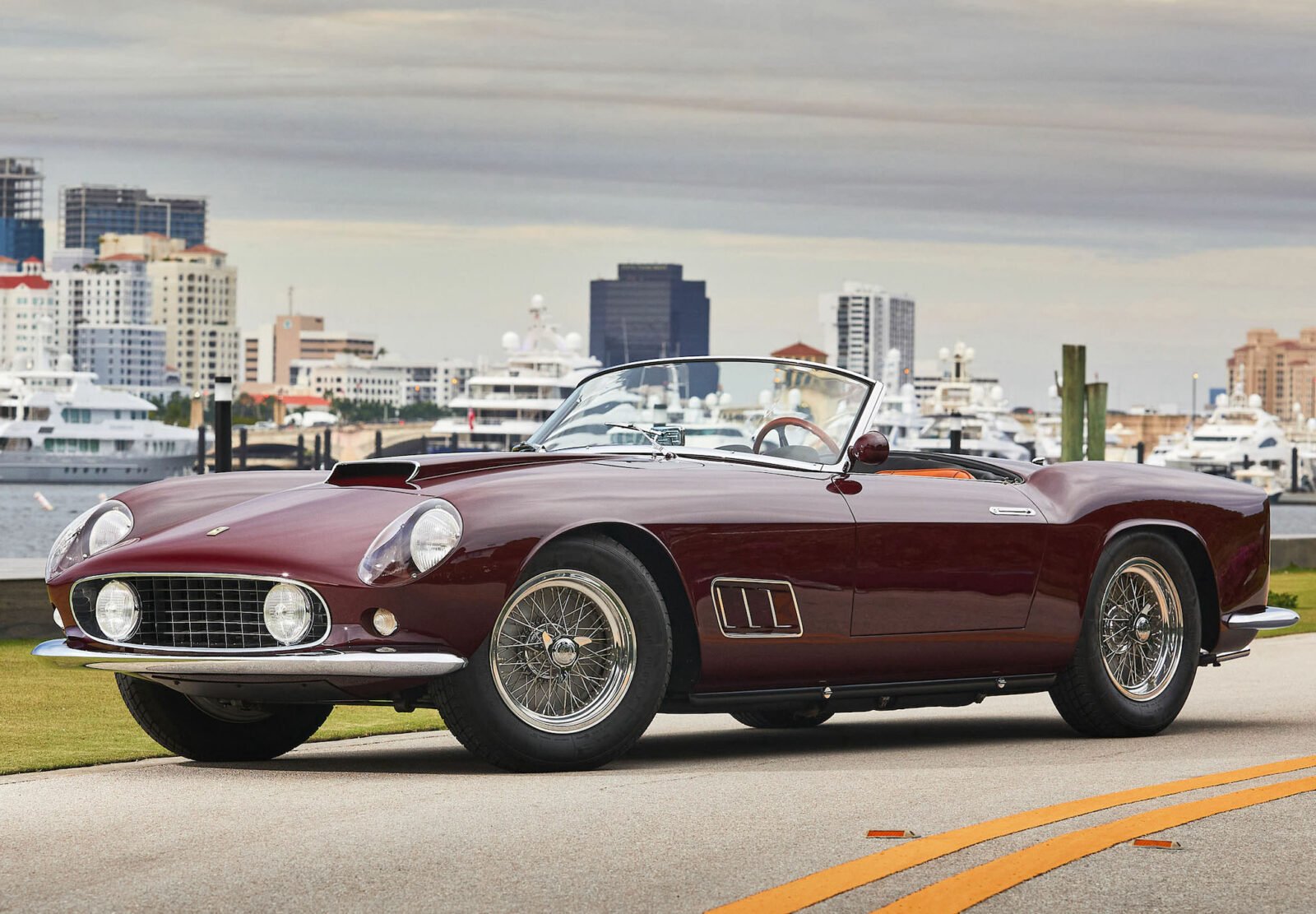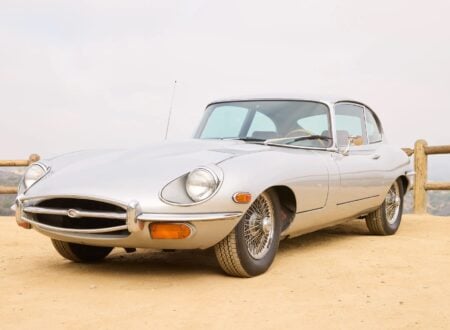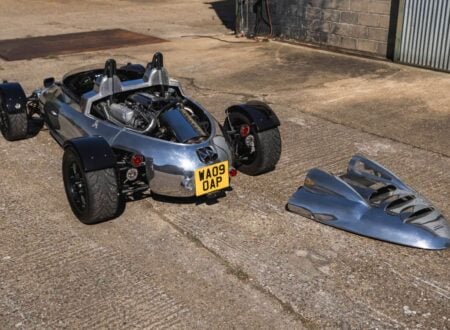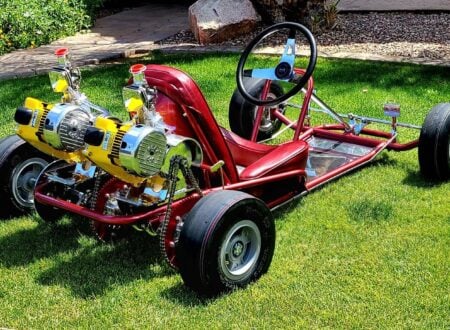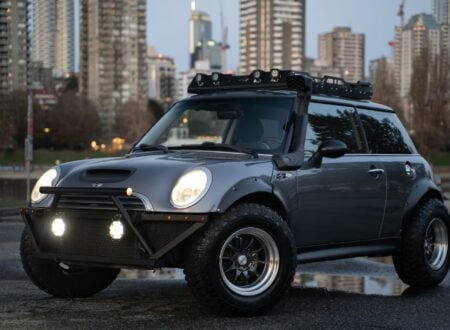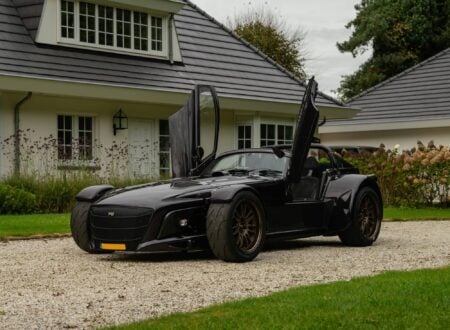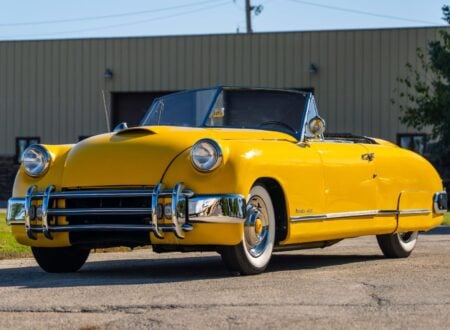The Ferrari 250 GT California Spider was actually the brainchild of an American named John von Neumann, he was a California-based importer who had the ear of Ferrari’s main man in the USA – Luigi Chinetti.
What von Neumann asked for was a high-performance Ferrari convertible that could be driven to the track on weekends, raced all day, and then driven home afterwards. Chinetti thought this was a great idea, as did Enzo Ferrari, and so the 250 GT California Spider was born.
Fast Facts – Ferrari 250 GT California Spider
- The Ferrari 250 GT California Spider was designed specifically to meet the demands of the US market, California in particular. It was developed to be a highly-capable race car with good enough manners for regular street use – like a much faster big brother to the Porsche 356 Speedster of the same era.
- The California Spider was originally thought up by American car importer John von Neumann who relayed the idea to Luigi Chinetti, who in turn had the ear of Enzo Ferrari himself. The concept was approved at the highest level and sent off to Sergio Scaglietti, who took the idea and made it a reality.
- This new car would be no soft-bellied boulevard cruiser. It was built on the chassis of the successful Ferrari Tour de France berlinetta race car, and it would also share its 240 bhp 3.0 liter V12 which resulted in blistering performance and a top speed of 156 mph (252 km/h).
- Scaglietti and his team designed a beautiful body for the new car, initially in long wheelbase form and then later in short wheelbase form – the car remained in production across these two series from 1958 to 1962 with 106 cars built in total.
Scuderia Ferrari And The Prancing Horse
Although Ferrari had been building cars since the late 1940s carrying their now famous yellow badge with the Cavallino Rampante “Prancing Horse” symbol, it would be the next decade, the 1950s, when the small Italian automaker really came of age – and became a household name.
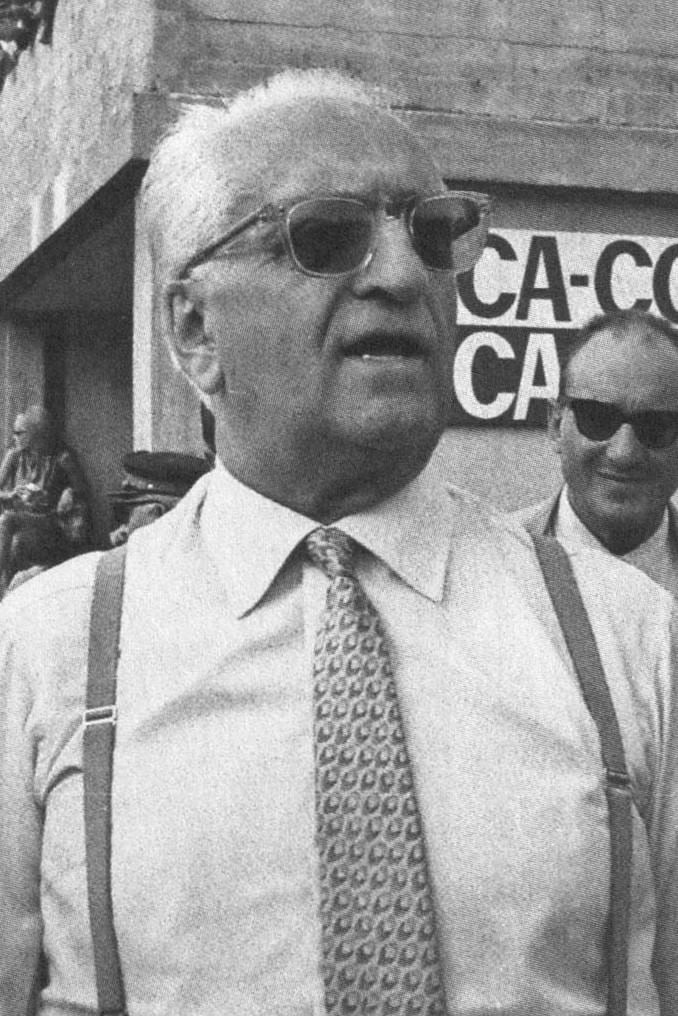

Enzo Ferrari, the company’s eponymous founder, had been a racing driver himself with a career staring in 1919, he won his first Grand Prix for Alfa Romeo in 1923. He founded his own race team in 1929, calling it Scuderia Ferrari, and fielded Alfa Romeo cars and a stable of drivers including major talents from the time like Tazio Nuvolari and Giuseppe Campari.
By the 1940s, after WWII Ferrari was building his own cars starting with the Ferrari 125 Sport of 1947. The company developed at an astounding pace, they won their first Grand Prix in 1951 with José Froilán González at the wheel, and then won their first World Championship a year later in 1952 thanks to the driving efforts of Alberto Ascari.
He then piloted a Ferrari to another World Championship the following year, showing the world in no uncertain fashion that the new Italian automaker was no flash in the pan. As the decade progressed it became ever more clear to Enzo Ferrari that he would need to build and sell more road cars and customer racing cars to fund his racing team – which was his one true passion.
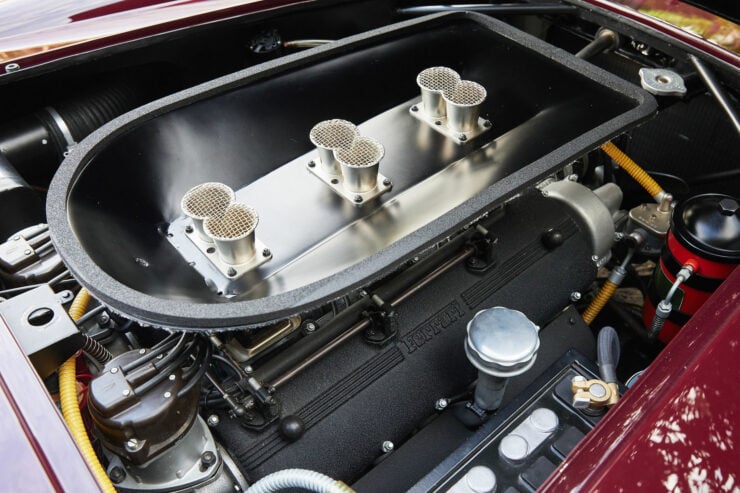

Ferrari production of both road cars and racing cars ramped up significantly in the 1950s and into the 1960s, until the company became one of the most celebrated performance car marques in the world. A reputation it enjoys to the modern day.
Two Old Friends And A New Beginning
The explosive growth in the popularity of Ferrari in the United States in there 1950s must have been quite a thing to behold. Much of this success can be attributed to one man – Luigi Chinetti. Chinetti had first met Enzo Ferrari back when they both worked at Alfa Romeo as racing drivers.
A staunch anti-fascist, Chinetti had moved from Italy to France when Mussolini came to power, and then across the Atlantic to the United States when France fell to Nazi Germany. Chinetti found employment with Pratt and Whitney in the United States, working on aircraft engines to help with the war effort. He became an American citizen in 1947 and interestingly, his naturalization was sponsored by Zora Arkus-Duntov – the Godfather of the Corvette.
After the war Chinetti went back to Italy to see family and friends, one of his oldest friends was Enzo Ferrari, who by this time had this own factory and was working on the design and development of his first car – the aforementioned Ferrari 125 Sport.
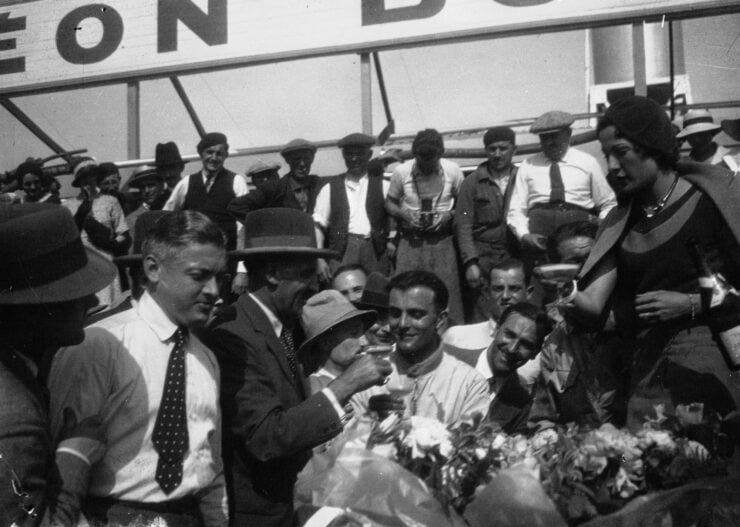

The two men struck a deal for Chinetti to be the Ferrari agent for both the United States and France, a mutually beneficial arrangement that would see the founding of N.A.R.T. (the North American Racing Team), that would field many iconic Ferraris in the biggest motor races of the age, with drivers like Graham Hill, Mario Andretti, Stirling Moss, Phil Hill, and many others.
It would be in this capacity that Chinetti would get to know Californian import car dealer John von Neumann, a man who imported and sold Ferraris through Chinetti’s company which was the primary agent for the USA.
A Ferrari That Could Do Everything
As mentioned higher up, it would be von Neumann who came up with the idea of the California Spider, a car named for the state in which it would be an ideal form of transport for someone who wanted a sports car that could be used for a dinner date on Friday night, then be used as a race car on Saturday morning – it would be a Ferrari that could do everything.
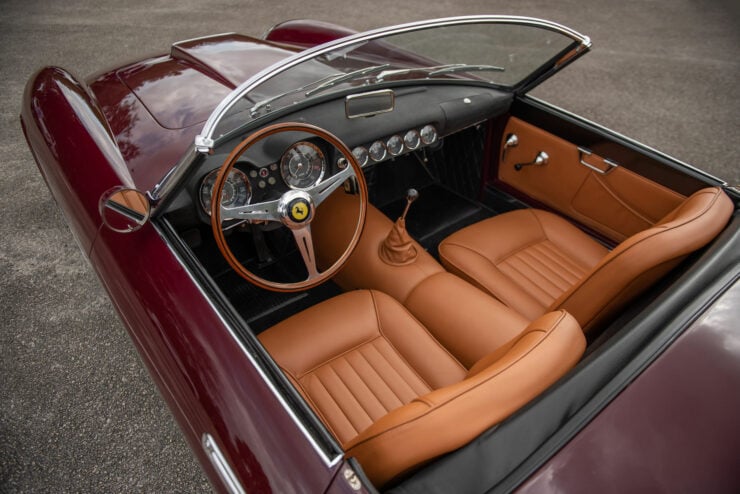

Fortunately Chinetti immediately saw the merit of the idea, and he took it to Enzo Ferrari with his own personal backing. Ferrari also liked the concept and so he sent the project outline to Sergio Scaglietti at Italian coachbuilder Carrozzeria Scaglietti, who then designed the body and built the car with his team.
Many extraordinary Ferrari bodies have been built by Scaglietti over the years, but the California Spider is undeniably one of the most beautiful.
The Ferrari 250 GT California Spider
To ensure that the California Spider would have the speed necessary to race successfully the car was built on the chassis of the successful Tour de France (another car built by Scaglietti) and it would be powered by the same car’s high-performance engine V12 Colombo engine.
This combination of chassis and powertrain held much promise, but it still needed a body. This body needed to be a convertible to meet the original von Neumann criteria, so a new design was created that would become known as one of the most beautiful Ferraris of the time. It had a steel body with an aluminum hood, trunk lid, and doors, and inside there was comfortable seating for two with all the usual Ferrari road car comforts.
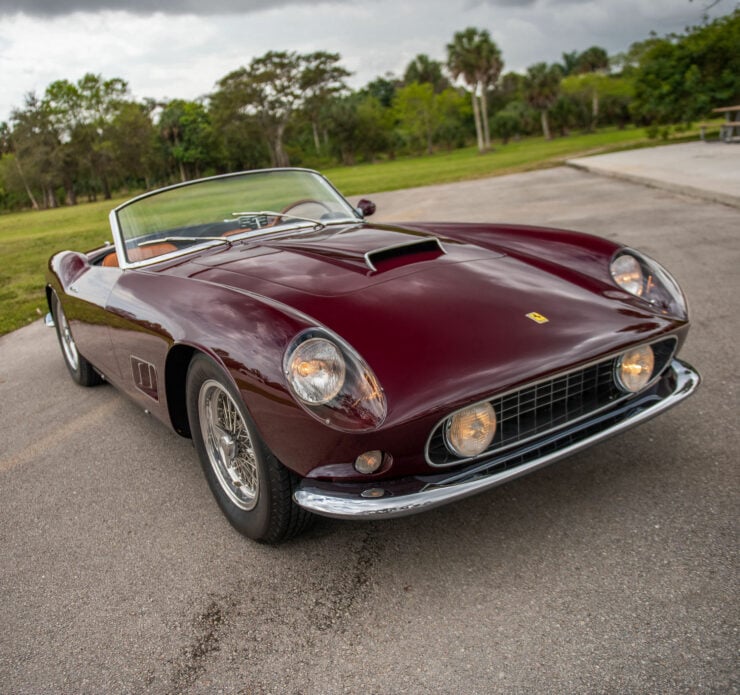

A small number of alloy bodied cars were made, and there was an optional hardtop offered which was popular with clients in cooler, more rain-prone climates. Today these original hardtops are much sought after and they can sell for more than the price of a nice car.
California Spiders began deliveries in the USA in early 1958 and not long after they began appearing in races, at both amateur and professional level. In 1959 a California Spider took a class win at Sebring and then a few months later another example placed 5th overall at the 24 Hours of Le Mans – an extraordinary result.
Many more cars claimed wins and podiums in SCCA events in the United States, cementing the model’s on track credentials and forever establishing it as one of the most important road-going Ferraris of the period.
In 1960 the new short wheelbase version of the car appeared, it was called the Ferrari 250 GT SWB California Spider and the earlier car was retroactively named the Ferrari 250 GT LWB California Spider. The newer car was based on the race-winning 250 GT SWB platform, and it had a wheelbase 20mm shorter than its forebear.
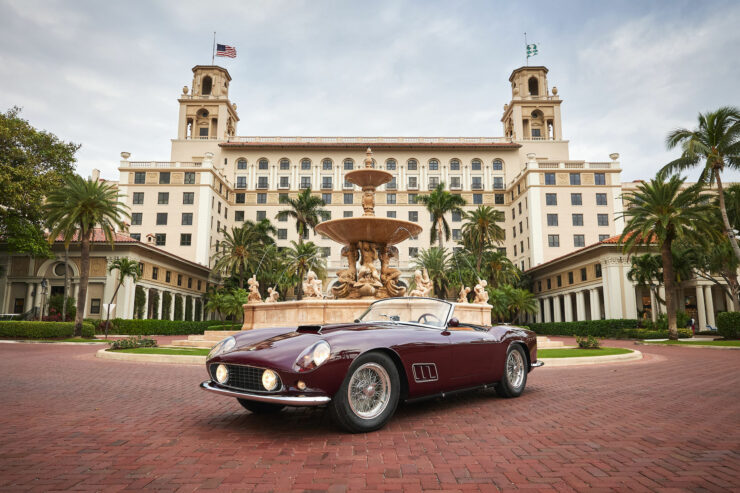

Interestingly it would be one of these SWB cars that would feature as the main non-human character in the 1986 comedy film Ferris Bueller’s Day Off. Much of the film’s plot centers around the car, but the vehicle used in the film was actually a replica – a Modena Spyder California.
In total 106 250 GT California Spiders were built, including both LWB and SWB cars, and today they’re among the most collectible and valuable classic cars in the world with valuations stretching into the eight figures.
The 1959 250 GT LWB California Spider Shown Here
The car you see here is a 1959 California Spider, making it one of the original long wheelbase cars based on the Tour de France platform. This vehicle was factory-equipped with competition engine and interestingly it was featured in the September 1959 issue of Sports Car Illustrated.
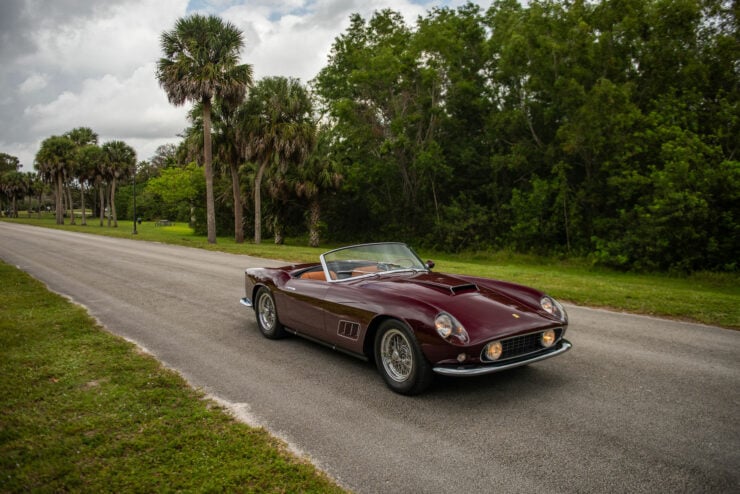

Importantly the car is Ferrari Classiche certified to retain its numbers-matching engine, gearbox, and rear axle and it was restored in 2012 by marque specialists.
It’s accompanied by original manuals and a complete tool kit, it’s documented with original factory records, former owner’s correspondence, magazine articles, period photos, and service/restoration invoices, and it has been awarded at the Salon Privé, Concorso d’Eleganza Villa d’Este, The Quail, A Motorsports Gathering, and the Cavallino Classic.
It’s now due to roll across the block with RM Sotheby’s on the 4th of March at their Amelia Island auction. It has a price guide of $9,000,000 – $11,000,000 USD and you can visit the listing here if you’d like to read more about it or register to bid.
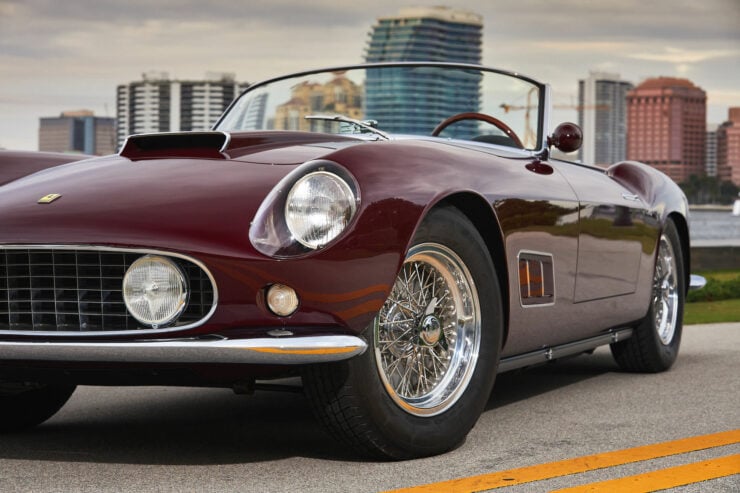
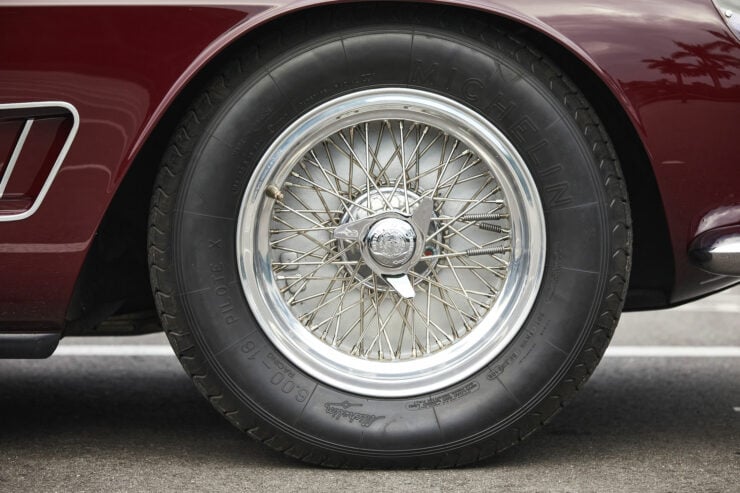
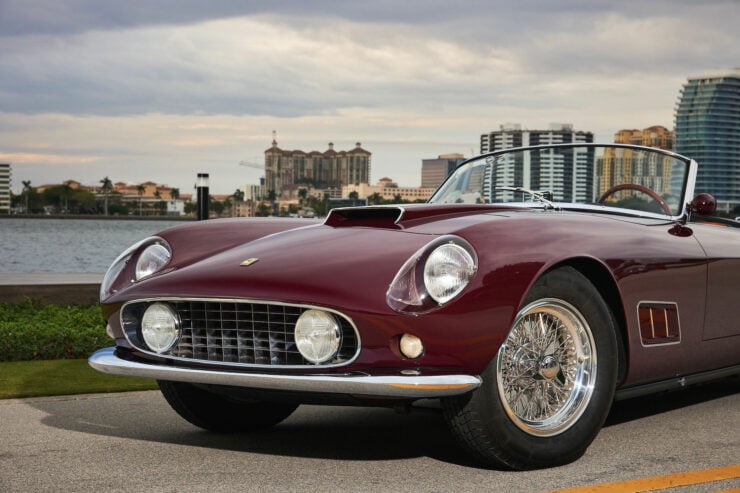
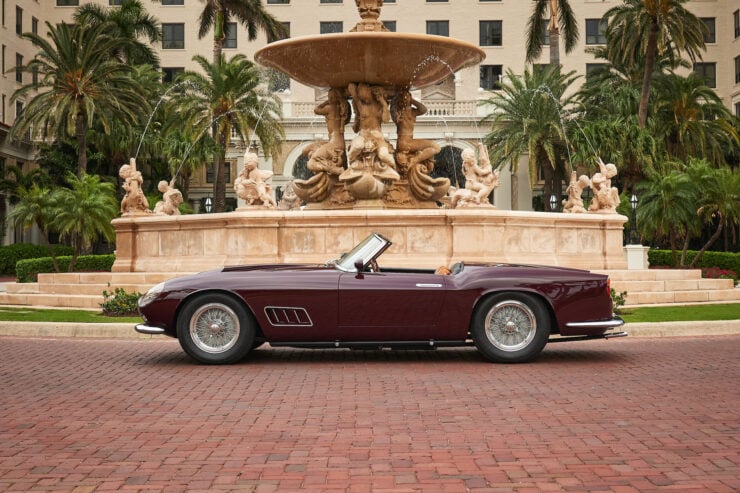
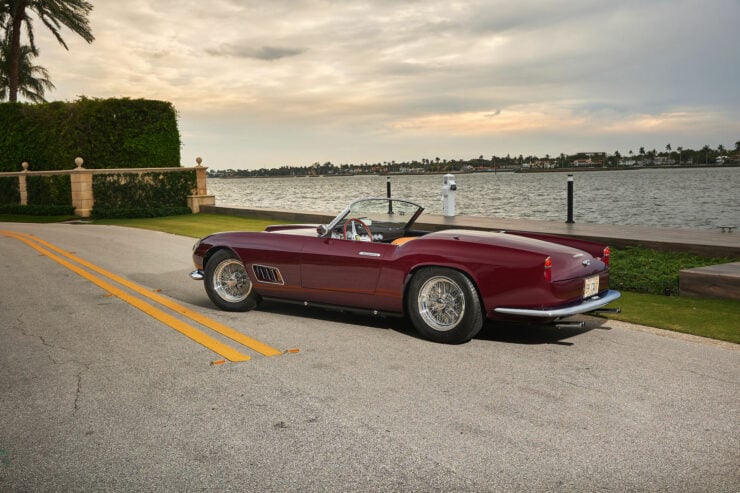
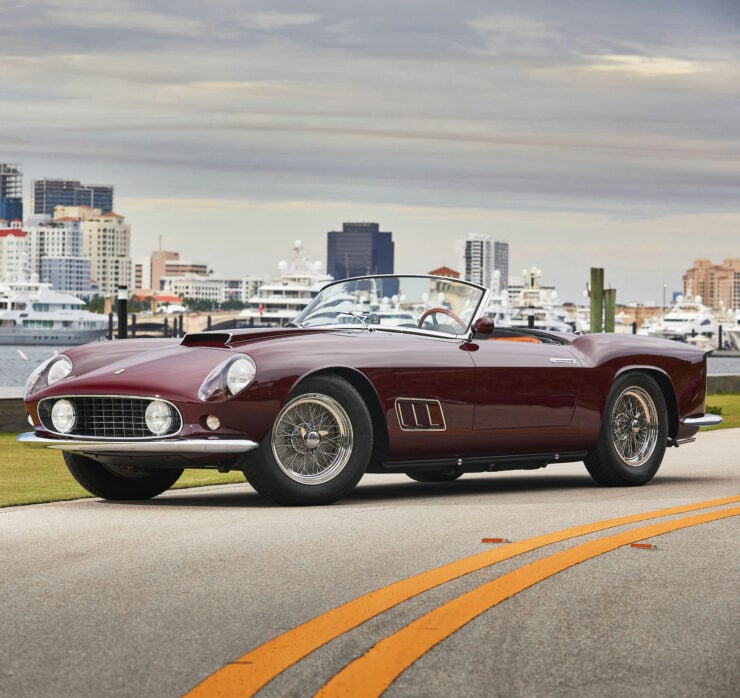
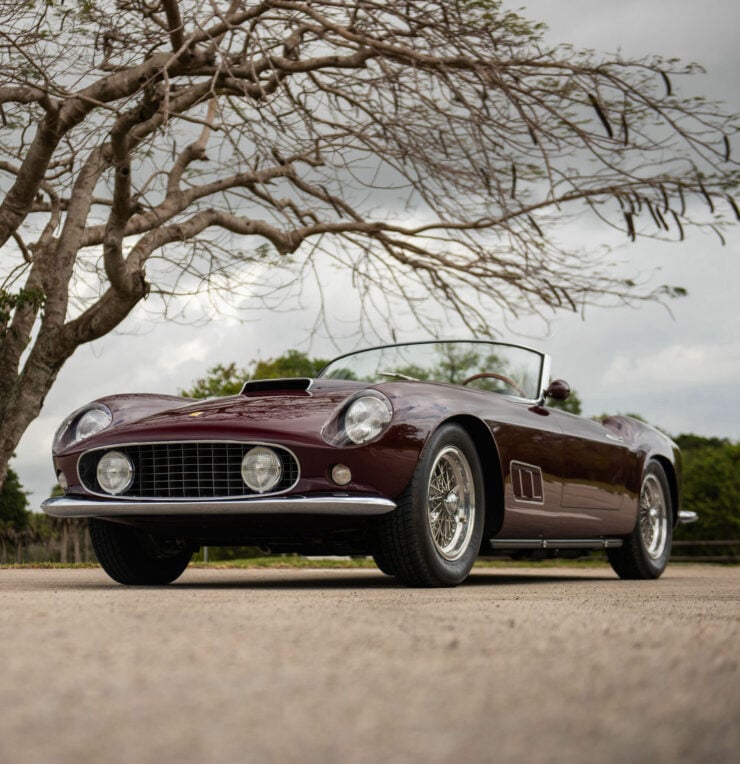
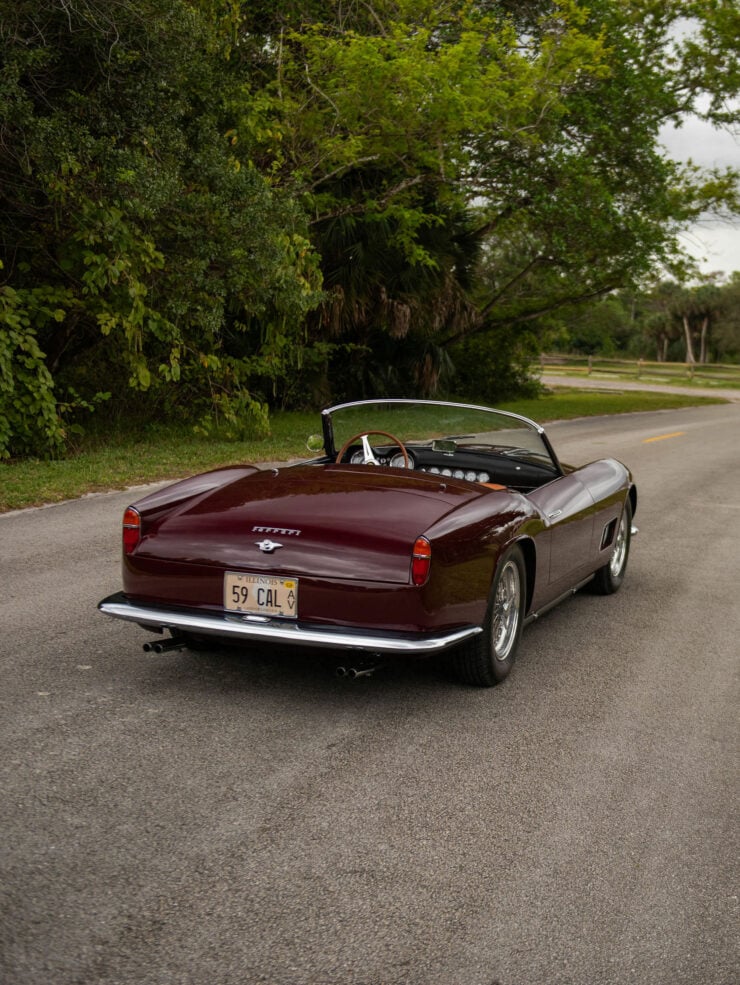

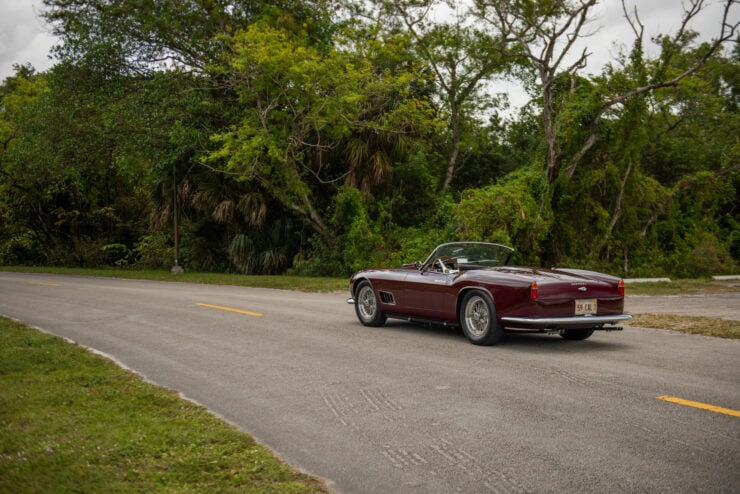
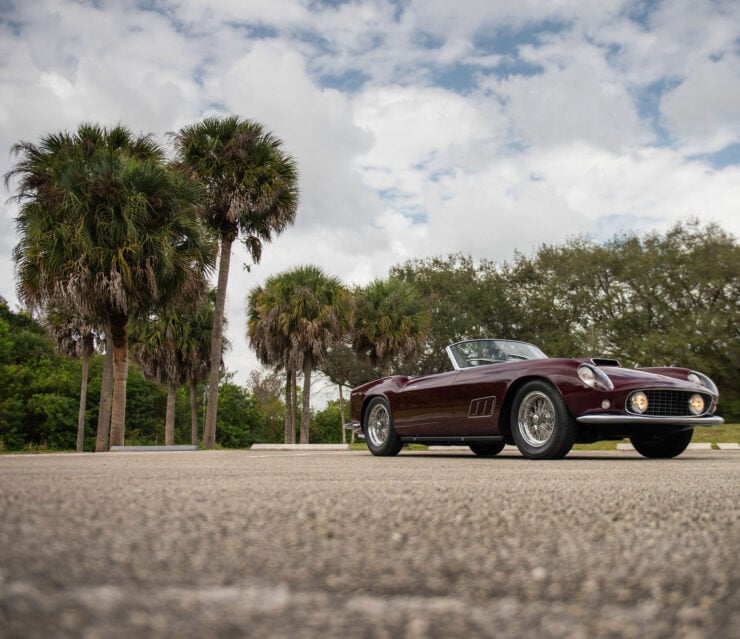
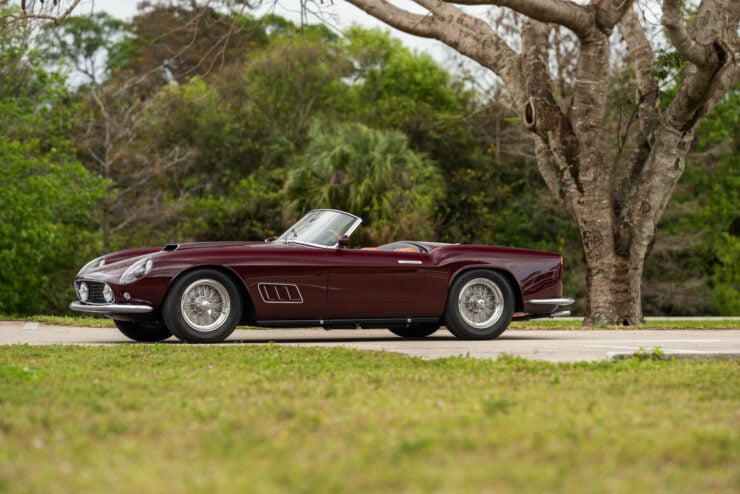
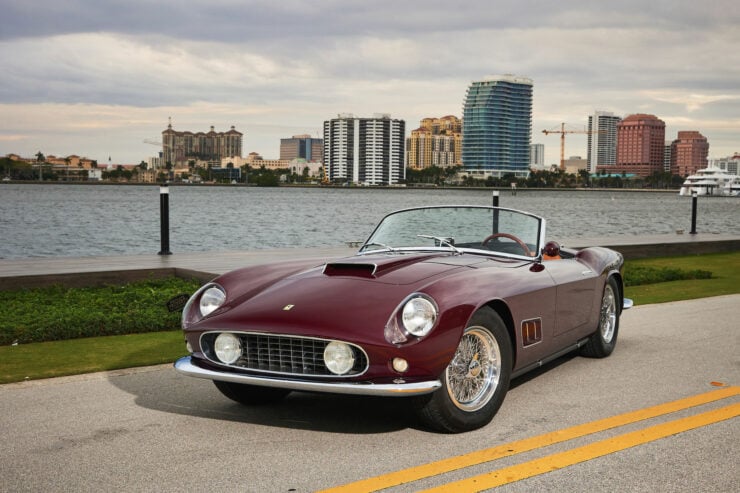
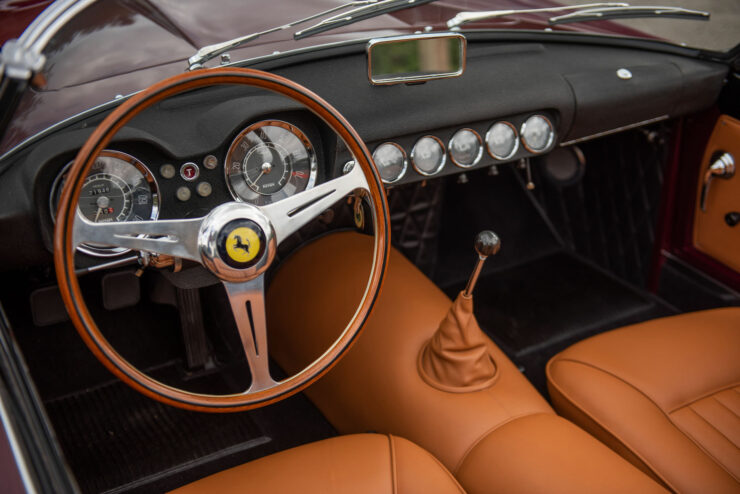
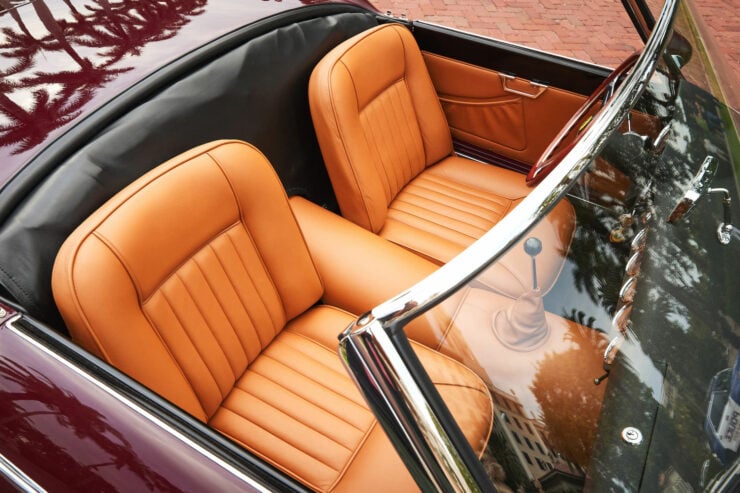
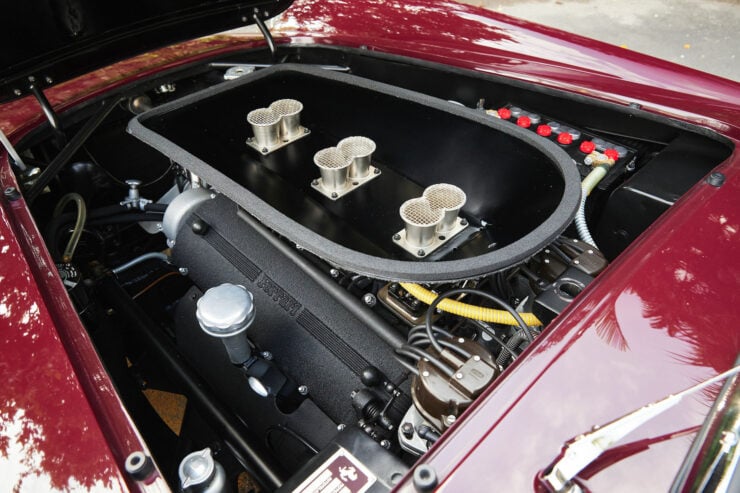
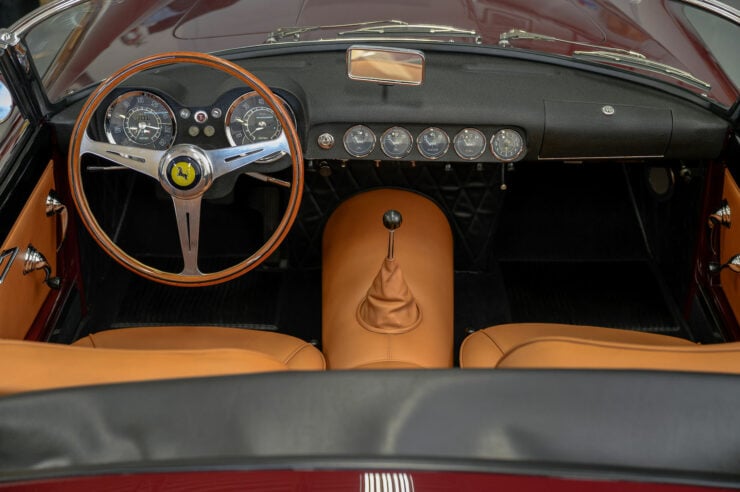
Images: ©2023 Courtesy of RM Sotheby’s

